- Home
- Michael Crichton
The Andromeda Evolution Page 12
The Andromeda Evolution Read online
Page 12
Shouting in his fiercest voice, the boy moved his free hand in a clear gesture of “Go away.”
The four scientists, alone in a foreign jungle, clearly had no idea how to respond. Still standing over the body they had been examining, they did not take their eyes off the child. On instinct, they moved slowly and spoke calmly, keeping their hands visible.
“He’s not infected, as far as I can see,” said Stone.
“Probably too young to have handled the contaminated weapons,” said Peng.
Harold Odhiambo began to step backward, his palms flashing as he raised them. A sad smile had surfaced on his face. “We should move away from here for the moment,” he told the group.
“Why?” asked Vedala. “He’s only a little boy. He’s not a threat.”
“I believe it is likely we are standing over the body of someone he knows, perhaps a father or uncle,” replied the Kenyan, gently.
As a group, the team backed away.
The boy crept toward the fallen man. Kneeling beside the corpse, he placed his forehead against the ground. Tears had sprung to the child’s eyes, and his chest shuddered. His lips curled down in a pure expression of grief.
The scientists watched from a short distance.
“We shouldn’t let him touch the body,” said Stone.
“How do you propose we stop him?” asked Vedala.
“I have an idea,” said Stone.
“You always seem to,” retorted Vedala.
Stone called out in a gentle voice, but only evoked a cringe and another shout. Crouching over the body protectively, the boy was tugging on a limp hand, trying to drag the corpse without success.
Palms up, Stone advanced a few slow steps. Alert and afraid, the boy stood suddenly. Stone ever so slowly reached around to his backpack and plucked a canary drone from its recharging perch.
Stone held out the small black device on his flat palm.
The boy’s eyes narrowed in suspicion as the four rotors spun into a blur. A whoosh of air spread below the drone. With a small smile that he hoped was reassuring, Stone lowered his hand and retreated.
The canary drone remained hovering in the air before him.
The boy’s eyes widened in wonder and curiosity. Looking quizzically at the other scientists, he tried to gauge the level of danger from this mystical bird.
Inch by inch, the drone flew nearer to the amazed child.
Confident of the temporary distraction, Stone detached the monitor hanging around his neck and handed it to Vedala. Speaking quietly, he told the group, “All the canary’s sensors are piped into here, including the camera. Use this to examine him for infection. I’ll be busy for the next few minutes.”
With skeptical approval, Vedala took the monitor and flipped the image to infrared. Examining the boy’s skin temperature, she launched into a hushed discussion with Peng Wu regarding what might be the most obvious visual signs of infection.
Meanwhile, Stone had slid a ruggedized laptop that looked like a brick of black plastic out from his backpack. Sitting on the ground, he unfolded a portable keyboard from the back casing and balanced it on his knees.
He began to type frantically.
Vedala examined an up-close image of the boy’s face through the monitor, zooming in on the nose and mouth. She relayed her findings to the other scientists in a hushed voice, without looking up.
“Unlike the others,” she said, “he hasn’t got any of the dark ash around his mouth or nose. And I see no sign of metallic growths on the epidermis.”
Vedala glanced over the monitor at the boy. He was standing on a log, watching the canary drone with bright, alert eyes. It hovered around him in slow circles. He looked like a kitten, ready to pounce.
“Motor and coordination seem to be functioning fine,” she added.
Stone continued typing, elbows sticking out awkwardly from his laptop. Peng was rifling through a leftover hard-case for sample bags. And a few yards away, Odhiambo was stooped over a compact utility shovel, struggling to scoop dirt as rivulets of sweat coursed over his temples.
“Harold, what are you doing?” asked Vedala. “I could use your help.”
Odhiambo turned to face her, still hunched over a shovelful of silty jungle soil. He nodded toward the body, then let his eyes move to the distracted boy.
“Oh,” said Vedala.
Although she was focused on a grand scientific adventure, Vedala had to remind herself that these were human lives that had been lost. Odhiambo had a way of maintaining perspective that she appreciated. It wasn’t a strength she possessed.
“Stone. What about you?” asked Vedala. “The kid won’t be distracted forever by your silly drone.”
Stone responded without looking up from his computer. “That silly drone, as you call it, is a sophisticated robot with all kinds of capabilities. Specifically, it has a camera, a microphone, a small speaker, and copious amounts of AI.”
“So what?”
“Did you notice how the boy moves his hands when he speaks? I think he’s using a subdialect of the Panoan language. What the Matis guides spoke.”
“Great, but none of us can understand it,” said Vedala. “Nobody outside the Amazon has ever even heard this language. They’re uncontacted, remember?”
“No such thing. We’re all connected in history at some point. Every human being. And his language is sure to have plenty in common with the other local dialects. Anyway, we’ll find out soon.”
Stone looked up to Vedala, smiling with pure, almost childlike delight. He tapped a button on his laptop. “I admit I’m a specialist, but my robots aren’t. I brought along a universal speech recognizer and extensive gesture-recognition libraries. What’s more, the diagnostic speaker on the drone is now connected to a text-to-speech synthesizer—”
“Wait,” interrupted Peng, looking over from a disemboweled backpack splayed out in the dirt. “The drone has speech recognition? And a voice?”
Stone smiled at the group. “Our little bird is a translator now.”
“Yes. This is a good idea, Dr. Stone,” added Odhiambo, nodding and smiling. “The boy will talk to the bird. In almost every indigenous mythology, birds serve as messengers. This is a very good idea.”
“I’ll believe it when I see it,” muttered Vedala.
“First,” said Peng, her brow furrowing as she thought through this new potential advantage, “ask him how he survived, while the rest of his group was infected. He could be the key to saving all of us.”
Thirty yards away, the boy was reaching for the hovering drone. It deftly moved out of the way when his hand approached, performing reflexive object avoidance. The graceful movements seemed to delight the child. Within thirty seconds he had made a small game out of trying to catch the “bird.”
The group of scientists watched the child intently. His knowledge could be invaluable to them.
Stone unleashed a final flurry of typing, his dark blue eyes focused on the screen as his fingers moved rapid-fire across rows of waterproof keys. Nidhi Vedala watched him as he worked. She was beginning to wonder if Stone’s technological adaptability hadn’t made him a useful addition to this mission after all. The knowledge she traditionally respected was stored in other peoples’ heads. But the roboticist seemed to have spread his skill sets outward, into the technology he carried with him.
“Okay, here we go,” Stone said.
Moving gently, the canary lowered itself back within reach. It began blinking its diagnostic lights in a pattern. Fascinated, the child stopped swatting at it and watched with anticipation. Nearing eye level, the drone chirped once, testing the speaker. The boy flashed a startled frown at the device, sitting back against a log.
After a deep breath, Stone held the monitor in both hands and spoke quietly into its microphone.
“Hello. What is your name?”
On the laptop, a universal translator library converted the English into broken Panoan and fed the words to a text-to-speech synthesizer on the dro
ne. Half a second later, the canary emitted a series of vocalizations reminiscent of the language of the Matis guides. Stone had chosen a voice synthesizer with the voice of a young man, hoping the boy would relate to it, but even so the syllables sounded computer generated and strange.
Nevertheless, startled recognition flashed over the boy’s face.
Taken aback, he hopped away from the canary. He stared at the hovering device with concern. Then he looked beyond it, directly at the scientists. With one hand he slowly reached up and touched his bare chest.
He tapped it twice.
“Tupa,” he said.
First Contact
I MUST WARN YOU ALL BEFORE WE BEGIN,” SAID ODHIAMBO in a grave voice. “This is first contact, and Tupa is only a boy. We have no other choice in the matter, and I understand that. But we are nobody’s savior. We are in all likelihood his worst enemy, no matter our good intentions.”
James Stone nodded solemnly, hunched over the monitor as he made final tweaks to the canary’s speech recognition interface. As the boy conversed more in his distinctive language, the speech library had automatically strung a web of probability between unrecognized words and likely corollaries from the half dozen or so related dialects included in the universal translator library.
After only ten minutes of conversation, a bedrock of common words had begun to emerge, some of them nearly identical to existing dialects and others idiosyncratically distinct.
For his part, the boy was quickly picking up on the unique accent of the drone. He seemed adept at discerning its meanings, even when the language used was wrong or the pronunciation incorrect. This uncanny problem-solving ability led Odhiambo to hypothesize that despite their isolation, the Machado must have interacted at least occasionally with outsiders.
It didn’t hurt that the boy Tupa was an exceptionally quick learner.
With her arms crossed, Vedala watched Stone and Odhiambo conversing over the monitor. She forced herself not to fidget. The backpacks were prepared, and the morning mist had evaporated. She had even set aside extra supplies for the young newcomer. Making first contact was clearly a delicate operation, and the boy surely had valuable information, but she could feel the urgency to set out rising along with the morning sun.
The field team desperately needed to reach the anomaly and reestablish contact with NORTHCOM. Throughout the entire march, not a single break had appeared in the canopy large enough to establish radio contact. The clearing beside the anomaly would be their last best hope.
Vedala assumed that missing the midday rendezvous with General Stern would be construed as a mission failure, with probable nonsurvival of the team. Though it was ludicrous, she couldn’t shake a horrifying vision of a nuclear strike engulfing the quarantine zone, imagining the blood-boiling heat of a supersonic blast wave front ripping through the jungle.
As Vedala half listened to the conversation and puzzled over their next steps, Peng Wu finished breaking camp. She had packed her samples and portable laboratory, and was now laying out a midmorning meal in the form of military rations that were too heavy to bring along. Three backpacks were loaded and ready to go. The fourth was sitting beside James Stone and Harold Odhiambo, its batteries powering the laptop that was processing their exploratory conversation with Tupa.
As Peng worked, she watched the others and tried to determine who among them could be trusted.
“We need to move soon,” Peng said to Vedala in a quiet voice. “And we need to figure out what to do with the child.”
Vedala nodded.
Tupa sat on a winding tree root with his blowgun across his knees. He spoke softly to the hovering drone, scarcely paying attention to the collection of human beings only a few yards away—a group of people of many colors, but clearly none of them his kin.
The boy was reeling from the violence of the morning, yet he was able to accommodate the questions of this magical speaking bird, whom he immediately took to calling “Sashi.”*
Whether the bird was magic or science, it made no difference.
“Boom!” called the boy, gesturing with both hands before continuing in the stuttering syllables of his own language.
The canary watched and listened via camera and microphone, occasionally speaking to the boy through its speaker, and Stone’s portable computer translated out loud into English: “It began with a loud noise.”
* * *
The following paraphrased transcription was completed by the team at Translingua Expressar do Brasil. Advanced technical support (including audio and video data reconstruction) was provided by students of the US Military Academy at West Point under the direction of Dr. Pamela Sanders.
The account is based on translated gestures as well as language, employing civilian builds of the CIA-funded Universal Translation Library (UTL) and the Gesture Recognition Engine Analysis (GREAn) Machine. Words are chosen by probability, and perfection is not guaranteed. For access to a full word-for-word transcription, or raw audio and video files, please contact the United States National Historic Register.
How did you get here, Tupa?
Three [days | suns] ago, all was good. We were moving between [family | communal] maloca huts along the river. My [uncles | older men] were digging up [turtle] eggs on the riverbanks. One day’s hike. I was helping.
Then a roar shook the jungle. Like thunder without the smell of rain.
What did you do?
We waited. Uncle said it was the shout of an angry god. The other men thought it was a great jaguar, hunting. I felt very [scared | worried]. The noise was from the direction of our family [camp | home].
The jungle became quiet.
The men were quiet, too. We heard, very [faint | distant] . . . screaming. Fierce screams. I began to pray. There were more shrieks, closer. I put my head between my knees. Everywhere was wild noise.
The light in the [high canopy] grew dark. Tree branches shook and jumped. Leaves were falling and we covered our heads. Then a [large group | horde] of monkeys passed by in the trees overhead. Hooting and screeching. They were running away from something.
I was [happy | relieved] it was only monkeys. The men were angry [we had] only one blowgun. There was [good meat] moving through the trees.
But something was wrong.
Monkeys [forage] slow. Take their time. These were crazy. Some fell, hitting the ground like [large seed pods]. The fallen ones who lived kept trying to run with [broken bodies]. It was a panic. And not just the monkeys.
All of the jungle was running away.
All of the jungle? Who is that?
Monkey. Sloth. Birds and [pigs | peccaries]. Even the snakes. They all ran away.
Where did you go then?
We moved along the river, toward the thunder. But the river had also run away. The banks were muddy. Pale [catfish] were flopping. We followed the [river’s corpse] until we found an [evil | bad thing] in the jungle.
It was a black mountain, with a mouth that breathed smoke and fire.
[side conversation]
WU
It sounds like ( . . . ) an explosion. Do we have intel on an explosion near the anomaly?
VEDALA
Sure. Something had to eject an ash cloud over the site. That’s what Eternal Vigilance detected. It matched Andromeda and triggered Project Wildfire.
WU
Then there could still be particulate in the atmosphere. It could be as highly infectious as the Piedmont site—
ODHIAMBO
The boy is upset. Let us get this back on track.
[end side conversation]
What did the men decide to do next, Tupa?
Uncle told me to stay back, to hide among the trees. Near the black mountain, dark ash was falling like [slow raindrops] or [cotton wood fluff]. Smoke came from the empty mouth ( . . . )
The [smoke | ash] got in their eyes. The men coughed. I heard them complain their lungs were burned. It was not a sacred smoke.
On the ground were pieces of black ro
ck. Some were very jagged. The men picked them up. The rock was even sharper and lighter than the thing called steel.
The stone flakes were good. My uncle replaced two ax heads right away. He argued the flakes were a gift from the gods. Others said the place was cursed. They would not touch the stone of the black mountain. After a little while, they decided to follow the monkeys and recover their meat.
I was glad to leave behind the bad place.
Were all the men sick? Or only the ones who touched the stones?
I don’t know. I was sent [home] with the turtle eggs. Uncle told me to warn our family. I ran home ( . . . ) but the maloca was empty. The others were gone. Maybe the roar frightened them. And they ( . . . ) they left behind ( . . . )
Is there something else?
More stones. At our maloca. I did not touch them. Someone else [had also] visited the black mouth. I stayed there for two nights, waiting. Nobody came back.
[crying]
It’s okay, Tupa. Take your time.
I decided to go and find the men.
But when I saw them ( . . . ) they were different. Their faces were [injured | wrong]. And they were angry, painting for [battle]. I was scared. I watched from the trees. They were shouting about [intruders] in the jungle. They had [found | tracked] enemies. I painted my face, too. But I was too scared to join them.
And then ( . . . ) and then they [attacked | fought].
Uncle died. All of them died. They were peaceful men. The black mountain made them crazy. It killed them.
I am sorry, Tupa. Do you know where the black mountain came from? How long it has been there?
No. I think that ( . . . ) it came from [hell | underworld]. It breathed fire and a black smoke that is poison. It hurt my family. And now it is eating the jungle.
These men and women want to stop the black mountain. To make sure it doesn’t hurt anyone else. Do you remember where it is?

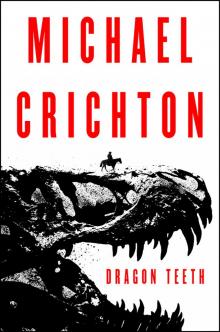 Dragon Teeth
Dragon Teeth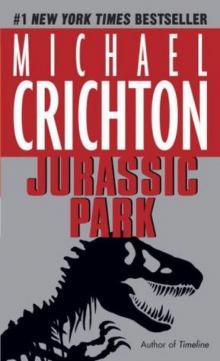 Jurassic Park
Jurassic Park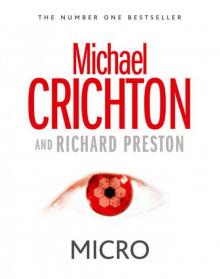 Micro
Micro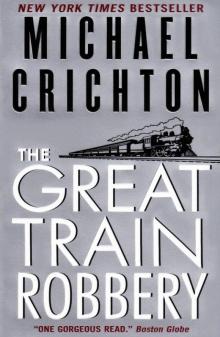 The Great Train Robbery
The Great Train Robbery The Andromeda Strain
The Andromeda Strain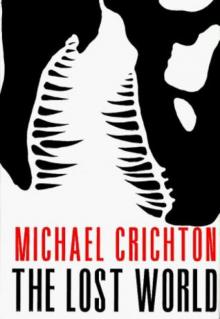 The Lost World
The Lost World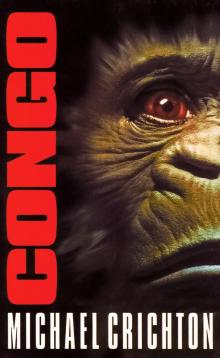 Congo
Congo Travels
Travels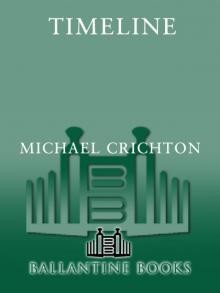 Timeline
Timeline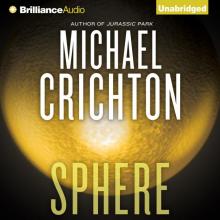 Sphere
Sphere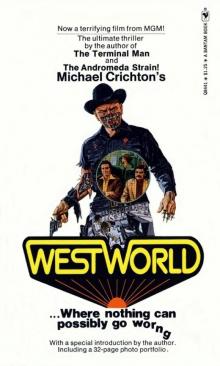 Westworld
Westworld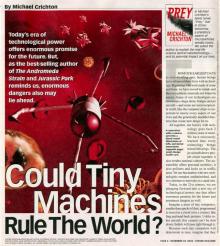 Prey
Prey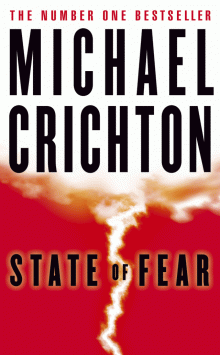 State Of Fear
State Of Fear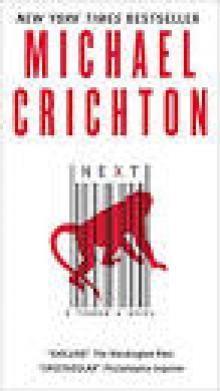 Next
Next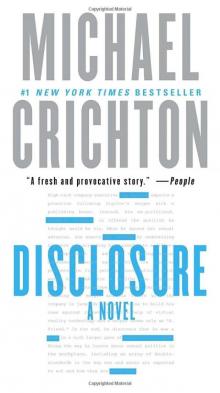 Disclosure
Disclosure Pirate Latitudes
Pirate Latitudes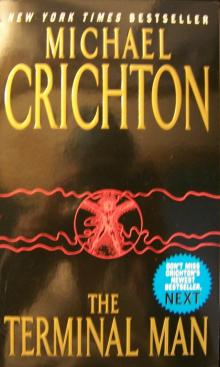 The Terminal Man
The Terminal Man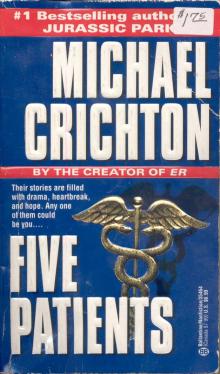 Five Patients
Five Patients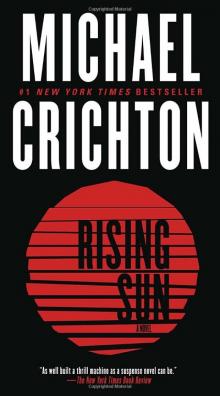 Rising Sun
Rising Sun Binary
Binary The Andromeda Evolution
The Andromeda Evolution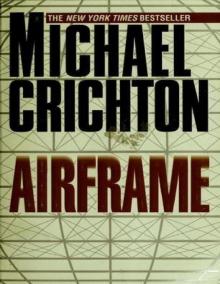 Airframe
Airframe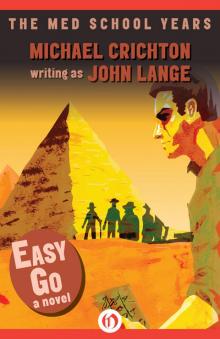 Easy Go
Easy Go Drug of Choice
Drug of Choice Odds On: A Novel
Odds On: A Novel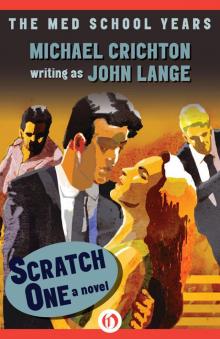 Scratch One
Scratch One Dealing or The Berkeley-to-Boston Forty-Brick Lost-Bag Blues
Dealing or The Berkeley-to-Boston Forty-Brick Lost-Bag Blues Venom Business
Venom Business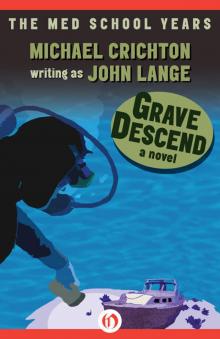 Grave Descend
Grave Descend Gold - Pirate Latitudes
Gold - Pirate Latitudes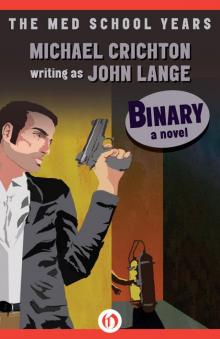 Binary: A Novel
Binary: A Novel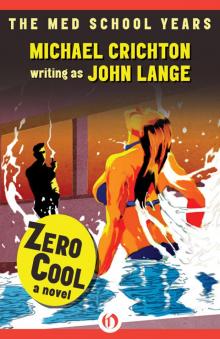 Zero Cool
Zero Cool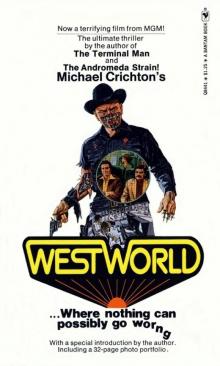 Delos 1 - Westworld
Delos 1 - Westworld